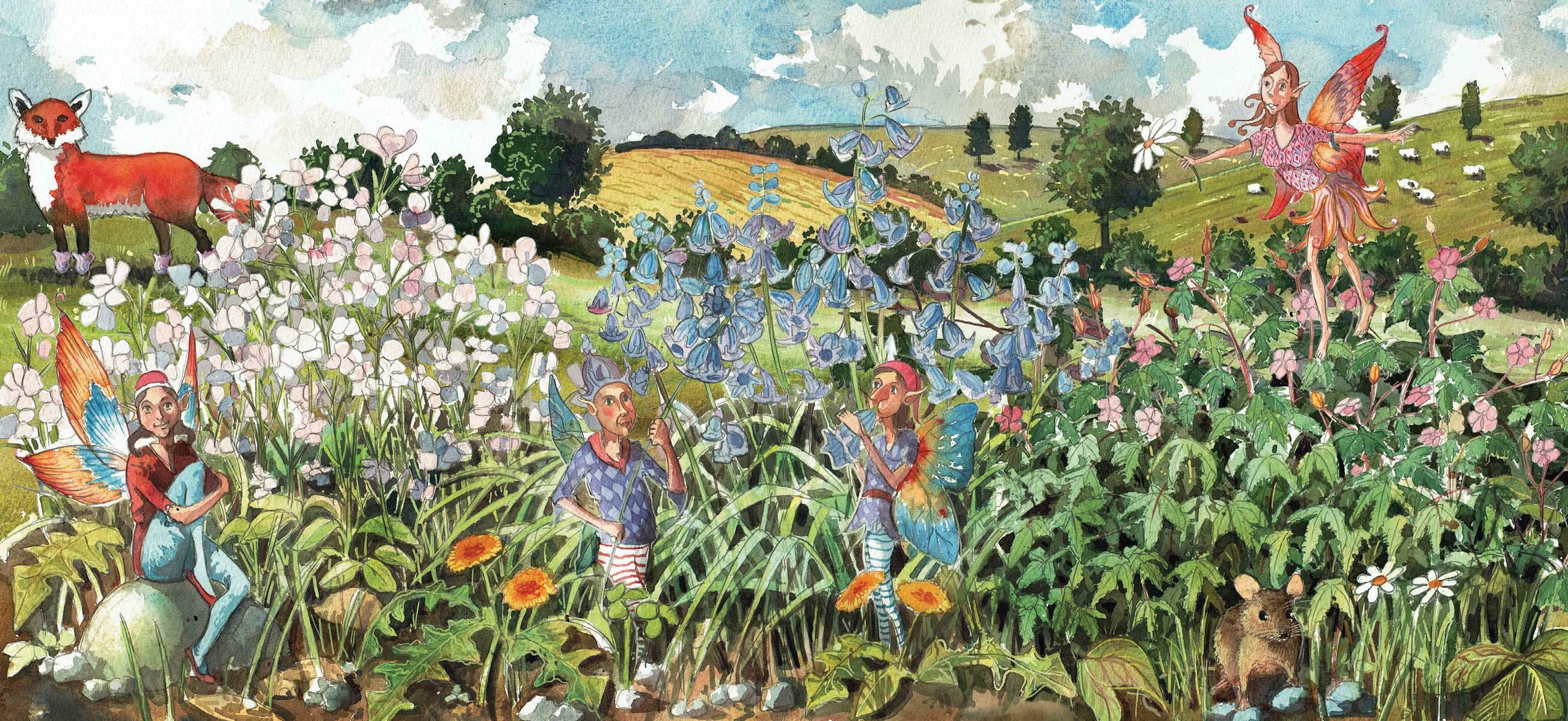
WHAT’S in a name? If that name is the old cognomen of a British wildflower, then it is the epigraph of the lore concerning the plant, the superstitions, traditions and knowledge linked to it over decades, centuries, millennia. Our wildflowers are deeply rooted in ancient myth and experience, their naming and their lore telling of their qualities —whether good or bad for human health, for example—but also, when we dig a little deeper, reflecting our own cultural history.
Pick a buttercup and play the childish game of holding it under someone’s chin to see the yellow sheen that betrays whether they like butter or not and you are enacting a relic belief of the West Country. There, long, long ago, farmers rubbed the udders of their cows with buttercup flowers on May Day, to increase the yield and richness of their milk. The ritual rubbing also protected the cattle from theft by faeries, who were always desirous of improving their herds of fairy cattle by interbreeding with cows from mortal fields.
The lore of the plants is a window into the mind of the past, even the far past, when spirits, elves and even the Devil were abroad. To cut foxgloves—or ‘fairy bells’ or ‘witches thimble’—for the prettification of the home was an offence against the fae people who lived in the flowers, inviting death. Conversely, for diabolical animals such as the fox, the bell-shaped flower, put on the paws, allowed it to prey on poultry in sorcerous silence.
Many of the earliest inhabitants of these isles, those of druid time, had no writing, left no record on stone or paper, but floral folklore is their memorial. To know the stories and legends of the wildflowers connects us with our forebears, but also with the plants, in a manner more profound today than merely studying their botany—or using their Latin, scientific names, which are invariably prosaic, based on the flora’s physical appearance.
This story is from the August 07, 2024 edition of Country Life UK.
Start your 7-day Magzter GOLD free trial to access thousands of curated premium stories, and 9,000+ magazines and newspapers.
Already a subscriber ? Sign In
This story is from the August 07, 2024 edition of Country Life UK.
Start your 7-day Magzter GOLD free trial to access thousands of curated premium stories, and 9,000+ magazines and newspapers.
Already a subscriber? Sign In

Give it some stick
Galloping through the imagination, competitive hobby-horsing is a gymnastic sport on the rise in Britain, discovers Sybilla Hart

Paper escapes
Steven King selects his best travel books of 2024

For love, not money
This year may have marked the end of brag-art’, bought merely to show off one’s wealth. It’s time for a return to looking for connoisseurship, beauty and taste

Mary I: more bruised than bloody
Cast as a sanguinary tyrant, our first Queen Regnant may not deserve her brutal reputation, believes Geoffrey Munn

A love supreme
Art brought together 19th-century Norwich couple Joseph and Emily Stannard, who shared a passion for painting, but their destiny would be dramatically different

Private views
One of the best ways-often the only way-to visit the finest privately owned gardens in the country is by joining an exclusive tour. Non Morris does exactly that

Shhhhhh...
THERE is great delight to be had poring over the front pages of COUNTRY LIFE each week, dreaming of what life would be like in a Scottish castle (so reasonably priced, but do bear in mind the midges) or a townhouse in London’s Eaton Square (worth a king’s ransom, but, oh dear, the traffic) or perhaps that cottage in the Cotswolds (if you don’t mind standing next to Hollywood A-listers in the queue at Daylesford). The estate agent’s particulars will give you details of acreage, proximity to schools and railway stations, but never—no, never—an indication of noise levels.

Mission impossible
Rubble and ruin were all that remained of the early-19th-century Villa Frere and its gardens, planted by the English diplomat John Hookham Frere, until a group of dedicated volunteers came to its rescue. Josephine Tyndale-Biscoe tells the story

When a perfect storm hits
Weather, wars, elections and financial uncertainty all conspired against high-end house sales this year, but there were still some spectacular deals

Give the dog a bone
Man's best friend still needs to eat like its Lupus forebears, believes Jonathan Self, when it's not guarding food, greeting us or destroying our upholstery, of course